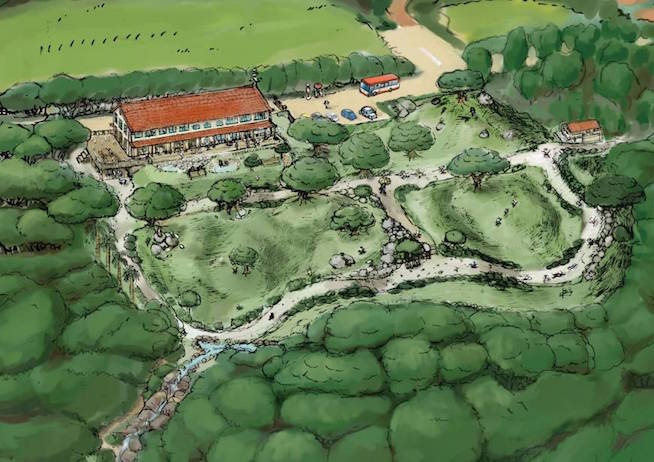Famed Japanese animator Hayao Miyazaki, the co-founder of Studio Ghibli is regarded as a demi god, a masterful storyteller and animation artist in the Japanese animation industry. Miyazaki had announced his retirement in 2013 which saddened his followers worldwide but that hasn’t stopped him from creating new content. Miyazaki is currently working on a 10 minute animated short named Kemushi no Boro (“Boro the Caterpillar”) and now is planning to build a children’s facility in a remote island in Japan as reported by Japan’s Kyodo news service.
Miyazaki whose known for putting deep messages in his films, has often be seen exploring themes of childhood, imagination and nature. From his debut films The Castle of Cagliostro (1979) to Spirited Away (2001) which won the best animated feature Oscar, to his final feature, The Wind Rises (2013), a recurring theme of humanity’s interconnectedness with nature can be seen. The childhood sense of wonder at the natural world and its impending loss is highlighted overall. Miyazaki has expressed concern that it is becoming increasingly difficult to reach children’s souls because of the encroachments of consumerism and digital life. “Utopia exists only in one’s childhood life,” he has said.
His upcoming forest retreat for children will be located in a virgin forest on a small island in Okinawa Prefecture, southern Japan, that will encourage children to enjoy nature through their five senses. A reinforced concrete two-story building to accommodate about 30 people will be erected within the 10,000 square meters of forest being offered by Kumejima town for the project.
 Under a “made in Kumejima” concept, Miyazaki plans to build this facility by local firms using local construction materials as much as possible. He’s also consulting with the local people to decide how the sanctuary will function.
Under a “made in Kumejima” concept, Miyazaki plans to build this facility by local firms using local construction materials as much as possible. He’s also consulting with the local people to decide how the sanctuary will function.
The 74-year-old filmmaker is expected to spend 300 million yen or $2.5 million of his personal finances on the project. The construction for this would start from next April and is due to be completed in 2018.
